
Many histories of people with learning disabilities focus on segregation. But although in the 19th and early 20th centuries there was a push to move them into asylums, that never affected the majority. Most lived outside such institutions and had to work. Historians haven’t looked much at lives in the community – yet that represented most people with learning disabilities.
My research covered most of the 20th century, until its closing decades saw major economic changes caused by deindustrialisation and the rise of new forms of work associated with computers, and new expectations of school qualifications. Those things had a real impact on the lives of people with learning disabilities, increasingly cutting them out of labour opportunities.
Until relatively recently, broad definitions included terms we wouldn’t use today, such as ‘mental deficiency’ or ‘handicap’. Those encompassed all kinds of cognitive impairments as well as those whose lives just didn’t quite fit the mould – troubled adolescents, people involved in petty crime, or those deemed promiscuous. Indeed, young women who got pregnant outside marriage were sometimes called ‘moral imbeciles’. We wouldn’t recognise those people today as having any kind of learning disability.
Employment rates among people with learning disabilities varied between about 40 and 70 per cent in the first half of the 20th century. It was quite gendered: men were much more likely to be in paid employment than women, who tended to do housework or informal childcare. These numbers were very high compared to today, when fewer than 5 per cent of people with learning disabilities are employed.
Esta historia es de la edición October 2023 de BBC History UK.
Comience su prueba gratuita de Magzter GOLD de 7 días para acceder a miles de historias premium seleccionadas y a más de 9,000 revistas y periódicos.
Ya eres suscriptor ? Conectar
Esta historia es de la edición October 2023 de BBC History UK.
Comience su prueba gratuita de Magzter GOLD de 7 días para acceder a miles de historias premium seleccionadas y a más de 9,000 revistas y periódicos.
Ya eres suscriptor? Conectar

Viking mussels
ELEANOR BARNETT digs into archaeological research to recreate a Viking-cum-AngloSaxon seafood dish from medieval York
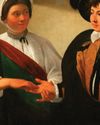
Fingers, frog's and fairies
Fortune telling was all the rage in the 16th and 17th centuries, and practitioners would stop at nothing to tap in to the supernatural. Martha McGill tells a story of Highland seers, tarot cards and encounters with the spirit world
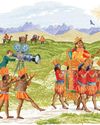
Nothing matches being with Alexander the Great on foot in the Hindu Kush
AT OUR LITTLE FILM COMPANY, MAYA VISION, we recently took the decision to digitise all of the rushes of our key films so that we could dispose of hundreds of boxes of tapes that had been kept in storage, throwing out stuff we thought we would never need again.

Library of the dead
Highgate Cemetery, created as a fashionable resting place for wealthy Victorian dead, is a veritable who's who of London's great and good. PETER ROSS roams the avenues of this most atmospheric necropolis
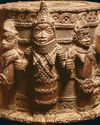
Slavery, exploitation and racism. These tragedies have long dominated histories of Africa. But there's another way to tell this story. And it's one that puts Africans right at the centre of their continent's extraordinarily rich and vibrant past
An 1414, in the Chinese city of Nanjing, a giraffe caused a stir. Amid a crowd of shocked, noble spectators, an official, leading the creature via a rope tied round its face, presented it to China's Yongle emperor. His officials said it was a qilin - an auspicious unicorn - which his sage governance had made appear.

England's forgotten hero
When the Hundred Years' War was reaching a climax, one man was fighting tenaciously to secure the English claim to the French crown. So why, asks Joanna Arman, is Henry V's formidable brother, John, Duke of Bedford, not better known?
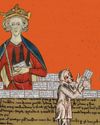
HENRY III AND THE MAGNA CARTA THAT MATTERED
King John's sealing of a charter at Runnymede in 1215 is one of the most feted moments of the Middle Ages. Yet, writes David Carpenter, it was the charter issued by his son 10 years later that became fundamental to England's history

Gutenberg publishes a pioneering new book
‘The printing press triggers an information revolution
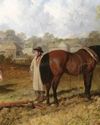
How empire ruptured rural Britain
We know that enslaved Africans and their descendants suffered in the distant colonies of empire. But, as Corinne Fowler explains, the colonial system also had dire impacts on people in the countryside of the 'motherland'
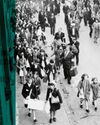
"I FELT VERY ALONE IN A WORLD GONE HORRIBLY MAD"
It was a moment of possibilities, dislocation and dread. Dan Todman tells the story of the 1.5 million urban Britons evacuated to the countryside at the start of the Second World War